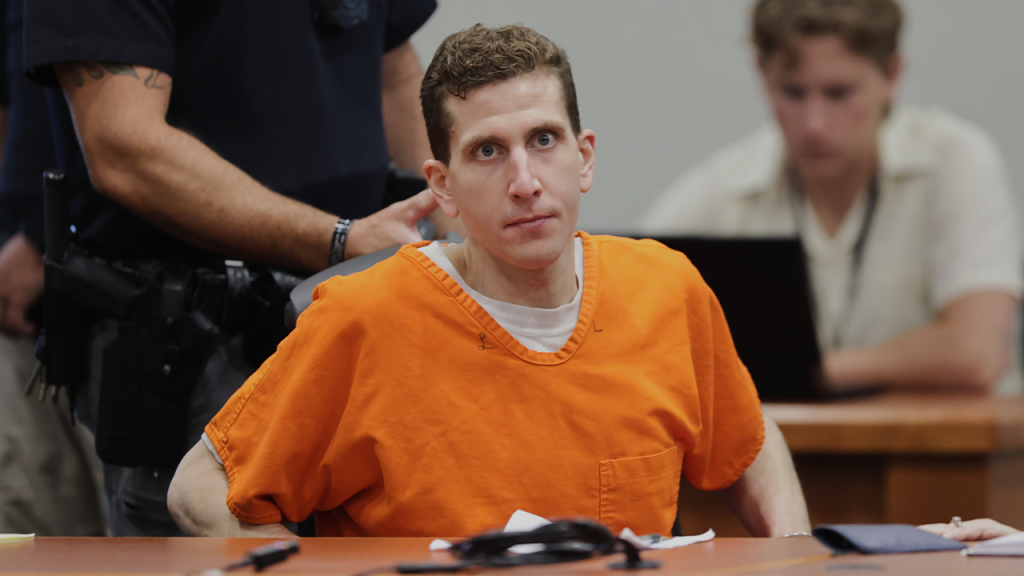The Battle Over Victim Restitution in the Idaho Student Murder Case
In a surprising turn in the aftermath of the tragic Idaho student murders, Bryan Kohberger’s legal team has challenged a court order requiring him to pay additional restitution to the victims’ families. The 30-year-old former criminology Ph.D. student, who recently pleaded guilty to the brutal 2022 murders of four University of Idaho students, is pushing back against approximately $27,000 in additional payments to two of the victims’ families. His lawyers argue that these families have already received substantial financial support through crowdfunding campaigns, making additional court-ordered payments unnecessary. This development adds another layer of complexity to a case that has horrified the nation and left four families forever changed by an unimaginable tragedy.
The heart of the dispute centers on additional expenses requested by the prosecution for the Goncalves family (approximately $20,000) and Madison Mogen’s mother, Karen Laramie (nearly $7,000) for travel and accommodation costs related to court proceedings. While Kohberger has already agreed to pay more than $250,000 in criminal fines and fees, plus $20,000 in civil judgments to each victim’s family as part of his plea agreement, his defense team argues that these additional restitution requests are redundant given the substantial public support the families have received. According to court filings, three separate GoFundMe campaigns raised over $200,000 collectively for these families – $73,493 in a joint campaign for Goncalves and Mogen, $48,815 specifically for Laramie to attend court proceedings, and $85,583 for the Goncalves family. The defense contends that these donations were explicitly solicited to cover the very expenses now being requested through the court.
Perhaps most striking in the defense’s argument is their blunt assessment of Kohberger’s financial future: “Mr. Kohberger has no ability now or in the future to pay restitution because he is serving four consecutive life sentences plus 10 years.” This pragmatic statement underscores the reality that Kohberger will never generate income or have the means to satisfy these financial obligations from behind prison walls. The defense cites Idaho Code 19-5304, arguing that the additional funds requested don’t qualify as economic losses under state law because the families have already received donations specifically covering these expenses. This creates a legal question about double recovery – whether victims’ families should receive both public donations and court-ordered restitution for the same expenses.
The plea agreement that spared Kohberger from the death penalty came in July, just weeks before his scheduled trial and after more than two years of denying the charges. The deal represented a significant turning point in a case that has captivated public attention since the shocking November 2022 murders of Kaylee Goncalves, 21, Madison Mogen, 21, Xana Kernodle, 20, and Ethan Chapin, 20. By accepting the plea, Kohberger forfeited his right to appeal or seek a sentence reduction – effectively ending any future legal challenges to his conviction. However, this new dispute over restitution demonstrates that even with the major questions of guilt and punishment settled, smaller legal battles can continue to affect the victims’ families and their quest for justice and closure.
The case raises difficult questions about victims’ compensation in high-profile murder cases. While the financial burden on victims’ families is real – including travel expenses to attend court proceedings, potential therapy costs, and other unforeseen expenses resulting from a loved one’s murder – the outpouring of public support through crowdfunding has created a unique situation. The defense team’s argument essentially suggests that when public sympathy manifests as financial support, it should be factored into court-ordered restitution. This perspective, while pragmatic, might strike some as callous, especially considering the immeasurable emotional toll these families have endured. No amount of money – whether from court-ordered payments or public donations – can truly compensate for their loss.
As Kohberger begins serving his consecutive life sentences in a maximum-security state prison, this dispute over restitution represents one of the final chapters in a legal case that has brought untold grief to four families and shocked the nation. While the monetary amounts in question may seem relatively small compared to the enormity of the crime, they represent something more significant to the victims’ families – acknowledgment of the ongoing costs, both financial and emotional, of losing loved ones to violence. The judge’s eventual ruling on this matter will likely weigh both the letter of the law regarding victim restitution and the unique circumstances of a case where public generosity has already provided significant financial support to the grieving families. Regardless of the outcome, no court decision can restore what these families have lost, but proper resolution of all aspects of the case may provide some small measure of closure as they continue their difficult journey forward.


